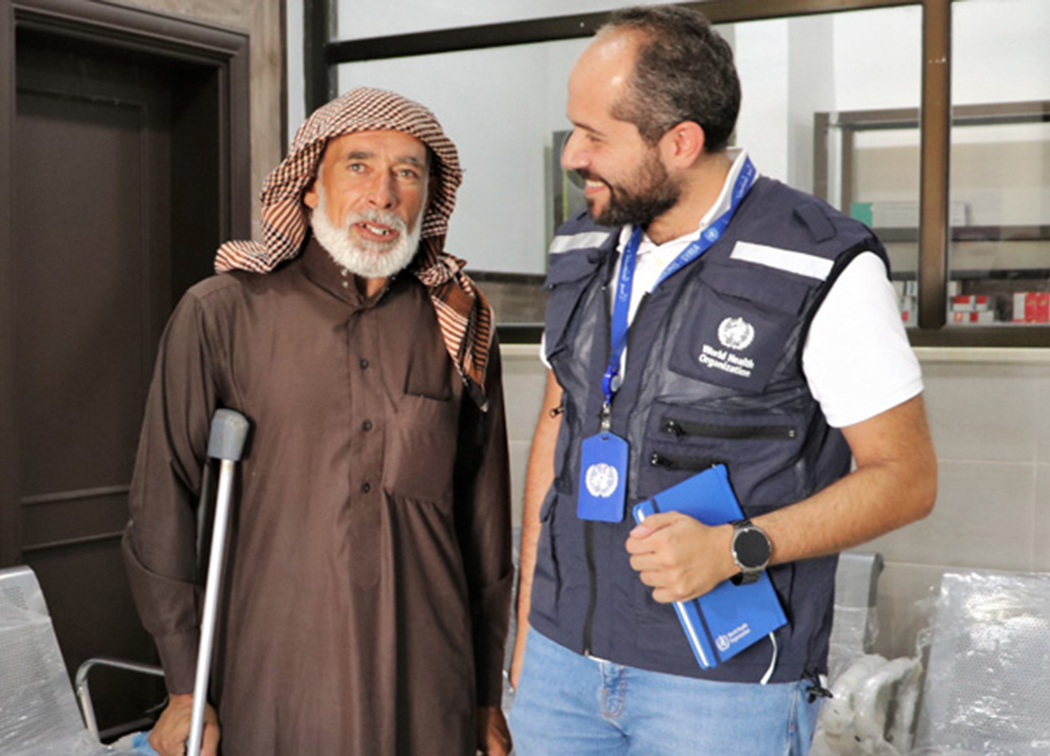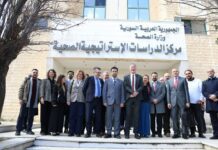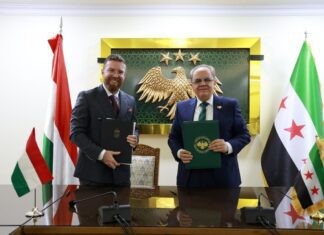
The Syrian healthcare system, battered by years of war, mismanagement, and destruction, is facing unprecedented challenges as the nation seeks to rebuild. Efforts by the Syrian Transitional Government (STG) and international organizations are underway to rehabilitate the hollowed-out sector, but the scale of the crisis demands urgent action and global support.
A Healthcare System in Crisis
The World Health Organization (WHO) has launched an appeal for $56.4 million to address Syria’s dire healthcare needs. More than half of the country’s hospitals are out of service, leaving millions without access to essential care. Recent conflicts have displaced over 882,000 people, further straining the already overwhelmed system.
“Syria’s health infrastructure is under severe pressure, with more than half of its hospitals nonfunctional,” said Christina Bethke, WHO’s representative in Syria. “Without urgent funding, we risk the closure of 141 health facilities in northern Aleppo and Idlib, which could have devastating consequences.”
Six-Month Plan
The WHO has outlined a comprehensive six-month strategy to address Syria’s healthcare crisis, focusing on several key areas. Strengthening trauma care is a top priority, with plans to provide emergency supplies, deploy ambulances, and ensure that hospitals remain operational.
Restoring essential health services is also critical, including addressing maternal and child health needs, resuming immunization programs, and deploying mobile clinics to reach underserved populations.
To mitigate the risk of disease outbreaks, the organization is enhancing early warning systems and deploying rapid response teams for containment efforts. Coordinating emergency patient referrals is another vital component, aimed at ensuring timely access to critical treatments and specialized care. Additionally, WHO is working to strengthen partnerships with health authorities and stakeholders across the sector, ensuring a unified and effective health response throughout Syria.
Mental Health & Chronic Conditions
WHO teams are also integrating mental health support into health facilities and ensuring treatment for chronic conditions like kidney failure. Recently, the Qatar Red Crescent distributed essential supplies to treat 1,200 kidney patients for two months in hospitals across Damascus, Daraa, and Suwayda.
Reforms & Decentralization
The STG has implemented reforms aimed at rebranding and decentralizing the healthcare system, including renaming 14 hospitals to remove associations with the former Assad regime. Hospitals once named after Assad’s family members now carry neutral names, reflecting a national focus on inclusivity and progress. “We are aligning healthcare institutions with the values of a new Syria,” said Health Minister Maher al-Sharaa. “This includes addressing maternal and child health, restoring immunization programs, and improving access to care across the country.”
The government has also made changes to medical training programs, including the cancellation of the internship year for medical specialties, to streamline the licensing process and bolster the healthcare workforce.
International Contributions & Humanitarian Aid
Qatar has played a significant role in supporting Syria’s healthcare recovery. The Qatar Development Fund has funded projects to meet urgent needs, including medical supplies for hospitals and support for orphan families in northern Syria.
Qatar Red Crescent’s efforts to provide kidney dialysis supplies and educational resources have been complemented by ongoing humanitarian convoys delivering relief supplies to hospitals and displaced families across the country.
Healing the Nation
Despite these efforts, the road to recovery is long. Years of war have left a legacy of dilapidated infrastructure, a lack of medical supplies, and severe shortages of healthcare professionals. Security challenges and limited funding further hinder progress.
“The humanitarian response must be scaled up immediately,” said Rosa Cristiani, WHO Emergency Officer in Gaziantep. “Our efforts to coordinate aid from Turkey are reaching millions, but much more is needed to restore Syria’s healthcare system.”
As the STG and international partners work to rebuild Syria’s healthcare sector, the focus remains on delivering life-saving care and restoring access to essential services. The collaboration of local authorities and global donors offers hope for a healthier and more stable Syria. For the millions of Syrians still awaiting medical care, the revitalization of the healthcare system is not just a priority – it is a lifeline.








